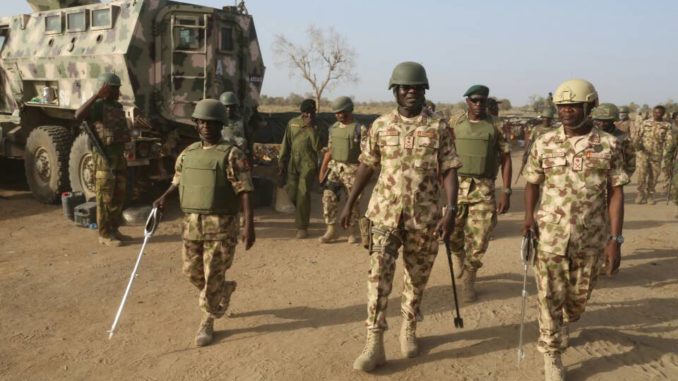
The failure and incapability of the Nigerian government to investigate and punish both state and non-state actors accused of human rights violations in the country has led to the entrenchment of abuses such as torture, illegal detention, human trafficking and sexual exploitations, the United States Department of State, 2018 Human Rights Practices report on Nigeria has observed.
The report which captured several instances of human rights violation excoriated the Nigerian government for the political will to identify and prosecute perpetrators of rights abuses despite passing laws and other legislation to check these violations.
“The government took steps to investigate alleged abuses but fewer steps to prosecute officials who committed violations, whether in the security forces or elsewhere in the government. Impunity remained widespread at all levels of government,” the report stated.
“There were several reports the government or its agents committed arbitrary and unlawful killings. The national police, army, and other security services used lethal and excessive force to disperse protesters and apprehend criminals and suspects and committed other extrajudicial killings. Authorities generally did not hold police, military, or other security force personnel accountable for the use of excessive or deadly force or for the deaths of persons in custody. State and federal panels of inquiry investigating suspicious deaths generally did not make their findings public,” the report added.
The report cited an investigative panel set up by then acting president, Yemi Osinbajo, in August 2017, to review the compliance of the armed forces with human rights obligations and rules of engagement. It stated that even though the panel submitted its findings in February 2018, the government did not publish the report of the panel nor prosecute those that might have been indicted.
Another example of government-backed impunity highlighted by the report is the Borno State government financed militia popularly known as Civilian JTF. The militia, which works closely with the military to prevent Boko Haram attacks on civilian populations, was accused of human rights abuses such as the use of child soldiers but “the government took few steps to investigate or punish CJTF members who committed human rights abuses,” the report noted.
Redundant Legislations
The report observed that impunity festers not because of lack of appropriate laws to prosecute perpetrators but in most cases, the laws are rendered redundant for lack of a political will to use it.
“The constitution and law prohibit torture and other cruel, inhuman, or degrading treatment. In December 2017, the president signed the Anti-Torture Act, which defines and specifically criminalizes torture. The Act prescribes offences and penalties for any person, including law enforcement officers, who commits torture or aids, abets, or by act or omission is an accessory to torture. It also provides a basis for victims of torture to seek civil damages. The Administration of Criminal Justice Act (ACJA), passed in 2015, prohibits torture and cruel, inhuman, or degrading treatment of arrestees; however, it fails to prescribe penalties for violators.
“Torture (NCAT). Lack of legal and operational independence and lack of funding, Torture (NCAT). Lack of legal and operational independence and lack of funding, however, prevented NCAT from carrying out its work effectively.” It stated.
For instance, the report observed that the Anti-Torture Act prohibits the use of evidence and confession obtained via torture, yet personnel of “the Special Anti-robbery Squad (SARS) often used torture to extract confessions later used to try suspects.”
In 2016, AI reported police officers in the SARS regularly tortured detainees in custody as a means of extracting confessions and bribes. In response to AI’sfindings, the inspector general of police reportedly admonished SARS commanders and announced broad reforms to correct SARS units’ failures to follow due process and their use of excessive force. Allegations of widespread abuse by SARS officers, however, continued throughout the year.
“In late 2017 citizens began a social media campaign (#EndSARS) to document physical abuse and extortion by SARS officers and demand SARS units be disbanded. In December 2017 the inspector general of police announced plans to reorganize SARS units, but complaints of abuse continued. Several SARS officers were dismissed from the force and, in some instances, prosecuted, and the National Police Force (NPF) sought technical assistance for investigations of SARS officers.
“The vast majority of misconduct cases, however, went uninvestigated and unpunished. In August then-acting President Yemi Osinbajo ordered the inspector general of police to overhaul the management and activities of SARS, and ordered the NHRC to set up a “Special Panel” with public hearings on SARS abuses. The panel’s work was ongoing at the end of the year and it had not yet issued a report.”
The report also blamed the government for failing to prosecute members of the military who were indicted in the December 2015 siege of the Shia group, the Islamic Movement of Nigeria (IMN) and other extrajudicial practices like torture, illegal detention, and attack of people for their sexual orientations.
“Military and police reportedly used a range of torture methods including beatings while bound, rape and other forms of sexual violence. According to reports, security services committed rape and other forms of violence against women and girls, often with impunity.
“As of December the government had not held any responsible officials to account for reported incidents of torture in detention facilities in the Northeast, including Giwa Barracks,” the report stated.
END

Be the first to comment